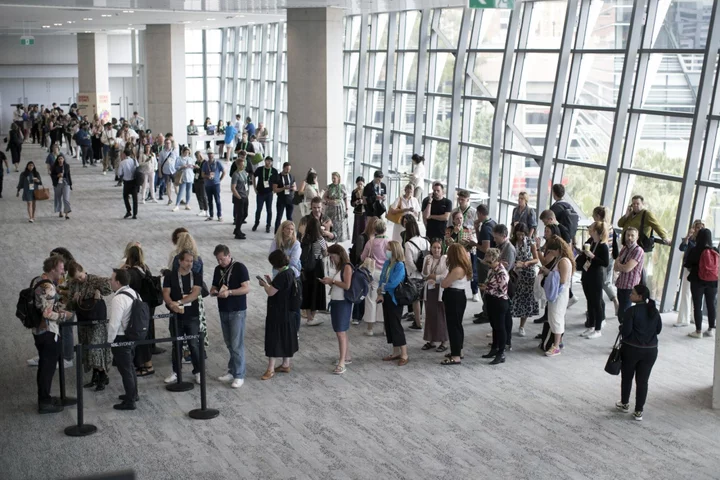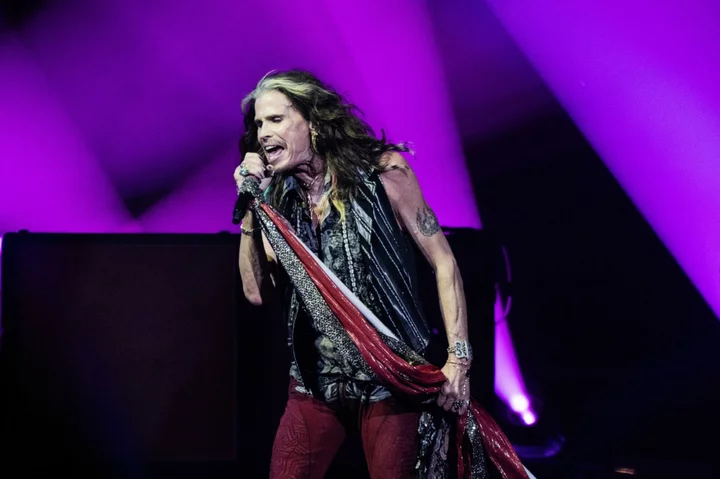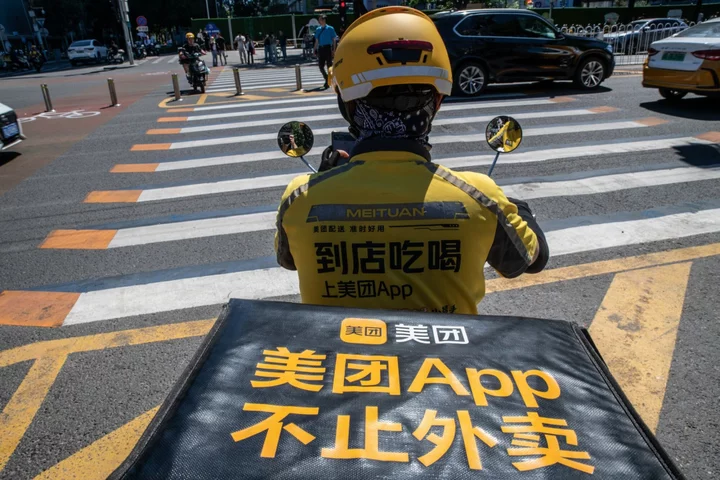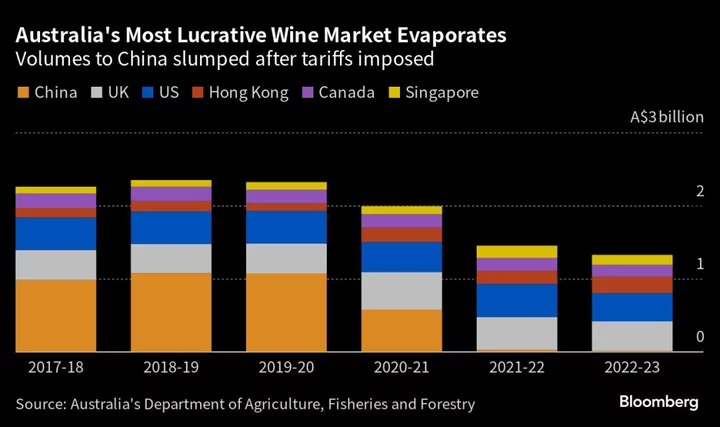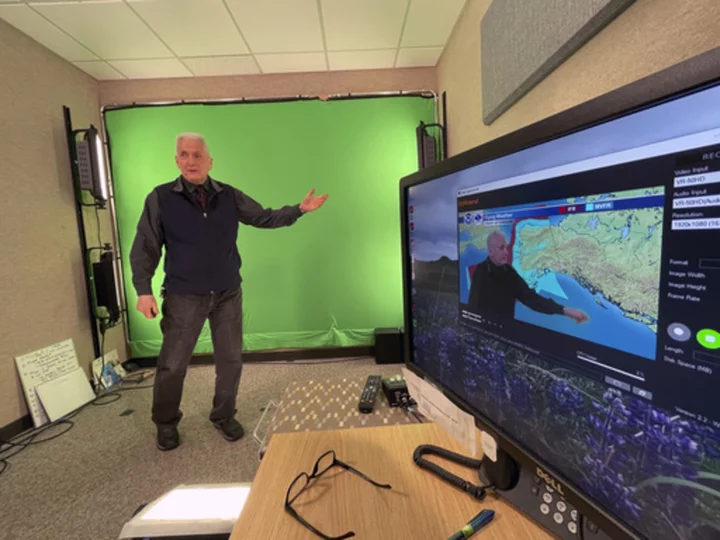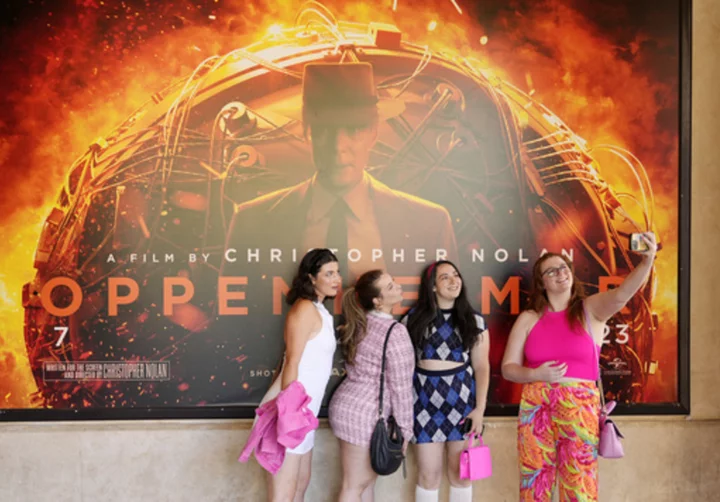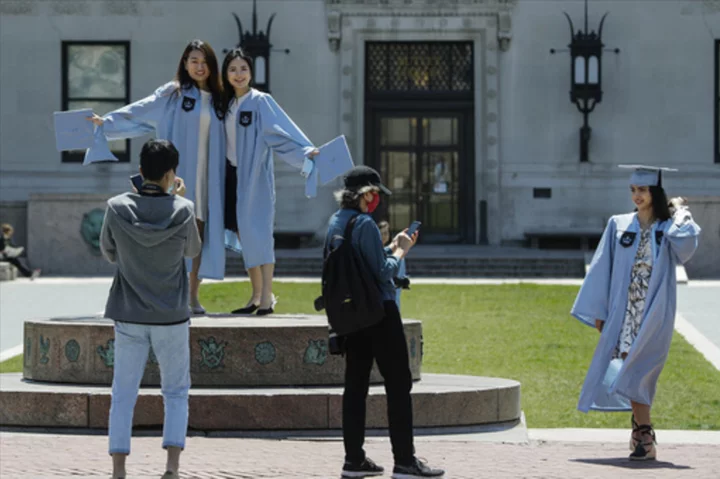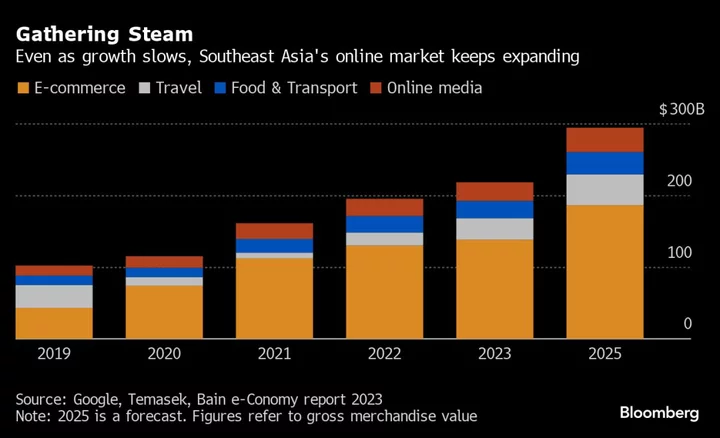Oscar-winning actress Nicole Kidman, futurist Amy Webb and Tesla Inc. Chair Robyn Denholm were among the big drawcards at this week’s inaugural South by Southwest Sydney, the first time the sprawling tech, music and film festival has been held outside North America.
While hefty entry prices — the all-inclusive platinum passes ran as high as A$1,300 ($820) — drew some criticism, they didn’t stop hordes of people attending gigs, screenings, gaming competitions and panel discussions around the city. The festival is expected to attract around 27,000 visitors and inject A$24 million into the New South Wales state economy, according to the government.
For Australia’s biggest city, it was both a boost for tourism and a step toward reversing years of pandemic-related closures that particularly hit the arts and hospitality industries. The week wasn’t without its hiccups: festival-goers faced long queues to get into some sessions, leading to last-minute schedule changes.
The festival, which has a 10-year deal to be held in Sydney, wrap ups Sunday. Weekend highlights include Saturday’s Someday Soon music festival, which will feature an array of pop, rock and electronic artists from Australia and abroad, and a 24-hour AI hackathon which is being run in partnership with tech companies including OpenAI and Microsoft Corp.
Tech conversations spanned AI’s impact on pretty much everything, to quantum computing, and what the world will look like in 2050.
Here are some of the festival highlights:
Things kicked off Sunday night with a red carpet screening of The Royal Hotel, Kitty Green’s feminist telling of an Australian outback thriller, starring Julia Garner and Jessica Henwick. It was the first in a long line-up of films that included a documentary about children’s’ entertainment superstars, The Wiggles. The premiere of Faraway Downs, a re-imagined version of Baz Luhrmann’s 2008 epic Australia, will be introduced by the director himself on Saturday night.
On Monday, a keynote session about big tech and transparency featuring Facebook whistleblower Frances Haugen proving a hot ticket.
Quantitative futurist Webb, who studies emerging technologies and uses modeling to forecast how they will impact business and society, spoke to a packed auditorium about what’s on tech’s horizon. She said the story everybody is missing around AI is that consolidation in big tech is becoming even more entrenched, as none of it works without cloud services. We’re seeing “companies with very powerful tools, aligning themselves with tech companies who are also cloud providers,” she said.
Read More: Even Futurists Are Struggling to Predict The Future Impact of AI
Tesla’s Denholm argued that “the energy transition globally is Australia’s to lose” because the country is rich in all the minerals that go into batteries — lithium, copper, cobalt — and the casings, which are made of aluminum, bauxite and iron ore. Denholm, who also chairs the Technology Council of Australia, added the nation can become a tech powerhouse and has a good shot at being the first country to crack error-free quantum computing.
Read More: Tesla Urges Australia to Give Tax Credits for Battery Industry
The future of food was a hot topic, with even seemingly niche sessions attracting attendees. This included a panel about lab-grown meat presented by the head of Australian startup Vow (known for its woolly mammoth meatball), and another about what the next generation of food might look like for astronauts as the US, India and China look to send crewed missions back to the moon, and Elon Musk pursues his dream of establishing a colony on Mars.
Read More: Edible Insects and Exotic Plants May Be the Future of Food
Meanwhile, a Wednesday panel on psychedelic-assisted therapy had to move to a larger venue at the last minute to accommodate the crowds — at least that’s what one festival-goer said while standing in a snaking line to get into the venue.
The growth and impact of AI was mentioned in most conversations, with Slack Technologies Inc. co-founder Cal Henderson calling it the most interesting technological stepchange in at least the last decade, noting companies have shifted away from discussing their NFT and metaverse strategies.
ESG was another acronym on many people’s mind. Companies are still struggling with Scope 3 reporting obligations, which are emissions firms are indirectly responsible for in their value chains, said Dan Chesterman, who is responsible for technology and data at ASX Ltd., which operates Australia’s main stock exchange.
Read More: Investors With $68 Trillion Target ‘Missing Link’ in CO2 Pledges
While it was the first time SXSW had ventured away from its regular host of Austin, Texas, it wasn’t immune to events back home in the US. The impact of Hollywood strikes were felt as more than 2,500 people listened to Kidman and producer Per Saari discuss their production company Blossom — but weren’t able to mention specific film and TV projects by name.
They recounted their first meeting at a dinner party in 2004 over a game of charades, talked about the benefits of being able to access a huge global audience through streaming services, and touted their success rate in the notoriously fickle entertainment industry: “Everything has made investors their money back.”

